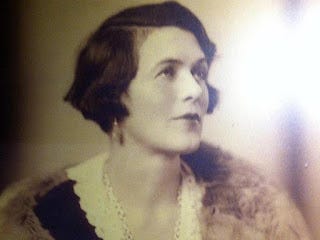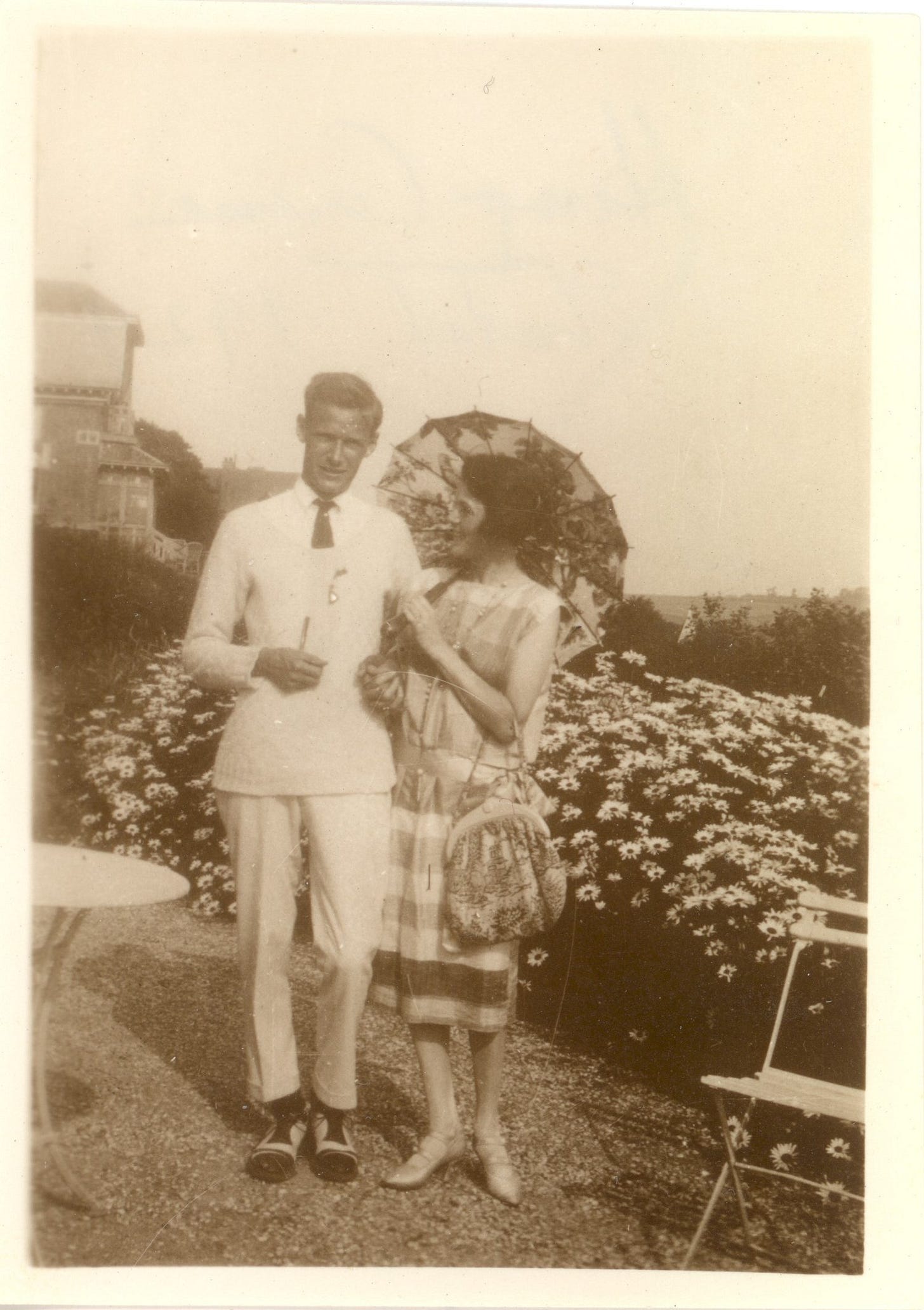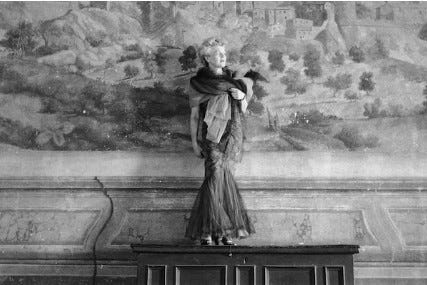
Caresse Crosby lived at least a dozen lives in her seventy-seven years.
Outrageous, unconventional, and savvy, this woman was the embodiment of life on your own terms. This inventor, publisher, and outrageous partier upended a quiet, predictable life and dove into the brazen figure of a woman who left a lasting impression on the literary world.
Mary Phelps Jacob was born in 1891 to a wealthy New York family descended from the first Puritans to arrive in New England. Her life took all the expected steps: marry wealthy, have two children, become a social hostess of Boston aristocracy.
But this predictable life was about to take a hard left while Mary began the first of her many identity shifts. Her husband became addicted to alcohol, renovating their home into the replica of a firehouse.
In 1910, she became so frustrated with restrictive whalebone corsets, she invented something new. With two handkerchiefs and a pink ribbon, she constructed the first of what is now the modern bra. Her creation gained popularity in her social circles, and she patented her creation in 1914 but sold it (for next to nothing) to Warner Brothers Corset Company, who went on to make millions.
By this time, she went by the name Polly Peabody. A soldier named Henry Crosby swept her off her feet. He was seven years her junior and J.P. Morgan’s nephew. Their affair created quite the scandal in Boston, but eventually her husband granted a divorce. This was highly unusual for the time, but she was determined to be more than a wealthy wife who watched her life pass her by.
She married Harry and moved to Paris with her two children. The couple’s wild life took off with a bang. She rowed her husband to work every day down the Seine in a red canoe. The traditional nine to five didn’t work out though, and they sent a telegram back to the Crosbys that read “Please sell $10,000 worth of stock. We have decided to lead a mad and extravagant life.”
And they did.
Their partying was legendary. Multiple affairs, and frequenting opium dens. They drank and wrote poetry. They partied with the likes of Picasso and Salvador Dalí, travelling the world and tattooing each other. She adopted the name Caresse, and began going around Paris braless, accompanied by her jewelry-adorned pet whippets, Narcisse and Clytoris. Yes, you read that right.
She arrived at a famous ball riding an elephant, topless and wearing a turquois wig. They greeted guests to their home from their bedroom, where they served champagne and caviar before stripping and having a communal bath.
Caresse’s life was the stuff of legends. Moving art, extravagance, and unconventional choices. Most of the characters associated with this lifestyle were men, as few women could live so hedonistically. Caresse broke so many rules, she created a wake of excitement everywhere she went.
The couple, deep into their Parisian “Lost Generation” experience, opened a printing press. Black Sun Press initially focused on their love poems, but expanded to publish James Joyce and Ezra Pound.
Life was in full swing. But in 1929, Harry died in a murder-suicide pact with his young lover. The scandal spread like wildfire, flames fanned by Josephine’s married status and Harry’s bright red toenails.
She expanded the press and began printing paperbacks of Hemingway, Dorothy Parker, and William Faulkner. With war looming, she returned to the states, where she married a man eighteen years her junior and enjoyed several affairs—one with a Black actor, which was illegal.
She taught Henry Miller to write erotica and produced pages upon pages of ghostwritten smut.
Post-WWII, she returned to Europe where she bought a crumbing villa outside Rome—complete with a title of princess—which became an artist commune and center for world peace. Her extravagant life continued with shirtless men carrying her around on a sedan chair, but she committed herself to political activism and remained present in her children’s lives.
Caresse could be outrageous because of her inherited wealth, but she chose to live without limits, and for that, I find her totally badass. She loved freely and deeply, ignored social convention, and left a lasting impression on the fashion and literary worlds. This pioneer showed other women that one can thrive outside the rigid lines of twentieth century expectations for women. And she did so with flair.







Amazing! She'd make a great heroine for one of my vampire novels...
Wow! What a gal! I would love to believe I could channel this sort of wild energy into my work!